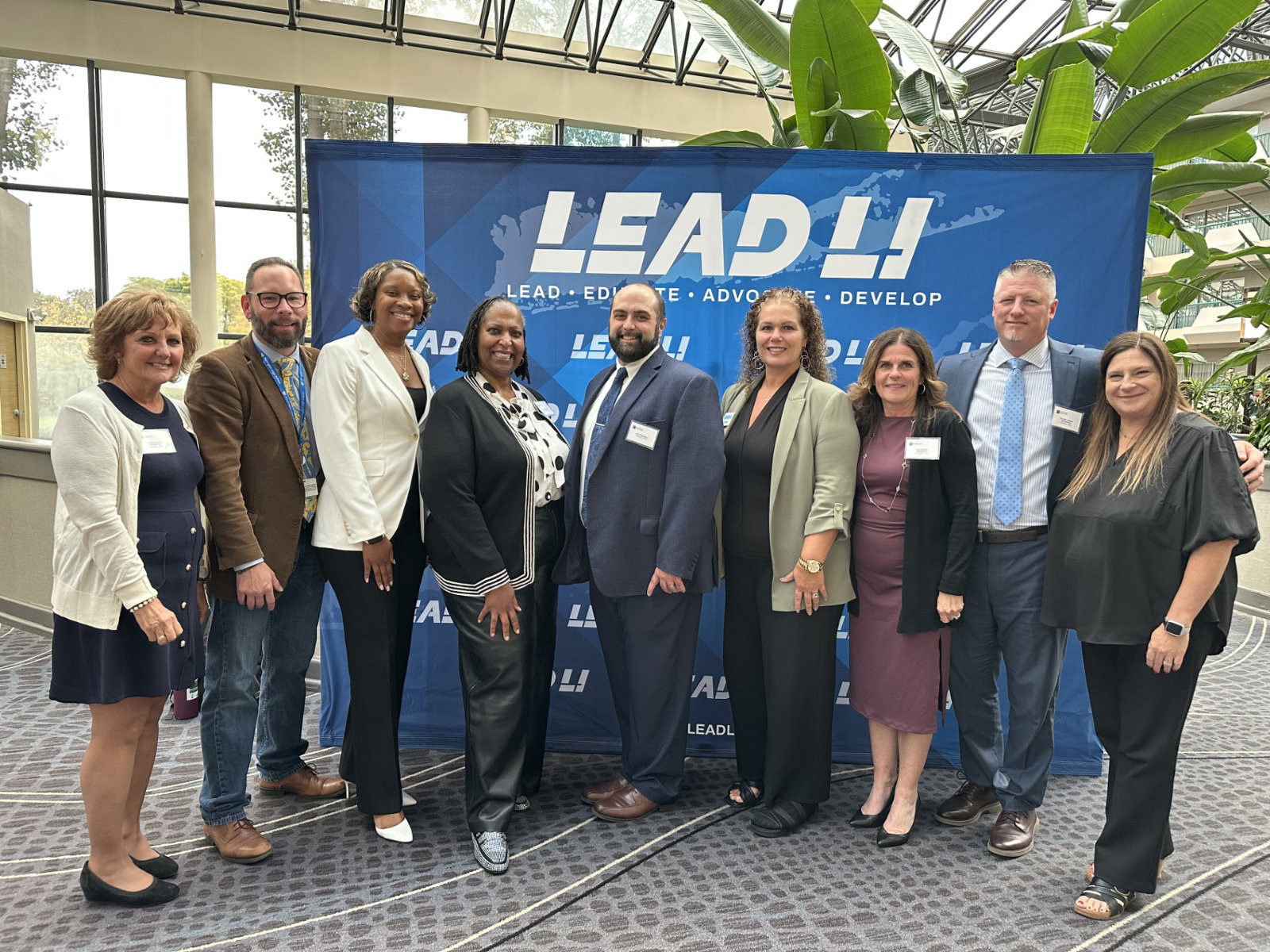District Officials Present at Fall LEAD LI Conference
November 10, 2025
Huntington UFSD Assistant Superintendent Brenden Cusack, Huntington High School Principal Rochelle C. Brown and J. Taylor Finley Middle School Principal Traci Roethel collaborated on a presentation at the Fall LEAD LI conference at the Marriott Melville Long Island for educators that was focused on restorative practices for students.
“The 50-minute talk focused on our 10 year journey implementing a variety of restorative practices in grades 7-12,” Mr. Cusack explained. The talk was titled “Enduring Impact… Restorative Practices from Three Perspectives.”
The session was well attended with about 35-40 participants who were eager to learn from Huntington’s past experiences. “We were very grateful to have been invited to speak on this topic about which we are so passionate,” Mr. Cusack said. “It was very enjoyable preparing and presenting with Traci and Rochelle and I hope we have another opportunity to do this again soon.”
LEAD is an acronym for Lead, Educate, Advocate and Develop. Six other Huntington UFSD officials attended the conference, including Superintendent Beth McCoy.
The presentation brought the audience through the many phases of implementation of restorative practices over the past decade at the high school and Finley. It has involved a shift in philosophy. For example, traditional questions would be: What rule was broken? Who broke the rule? What is the punishment. Restorative questions are: Who was harmed? What are the needs of all involved? How can all parties address the needs and repair the harm? “Restoration replaces retribution” in the philosophical shift.
At the high school, students have considered topics that include: What is respect? What does responsibility look like? Why is empathy important? What is a growth mindset? How can we find courage within ourselves to speak up, start over and show up for others?
Mrs. Roethel made a strong case for the use of restorative justice on the middle school level. “Instead of punishing students, restorative justice encourages them to reflect on their behavior, understand its impact and take responsibility, which helps them learn and grow,” she said. “It fosters a supportive environment where students can rebuild trust and relationships. Restorative justice takes a positive, proactive approach to conflict, helping students address root issues and prevent repeated behavior. It helps middle schoolers build empathy, manage emotions and navigate peer conflict. It encourages a sense of community and belonging, where students feel safe, valued and heard, fostering a culture of respect and collaboration.”
